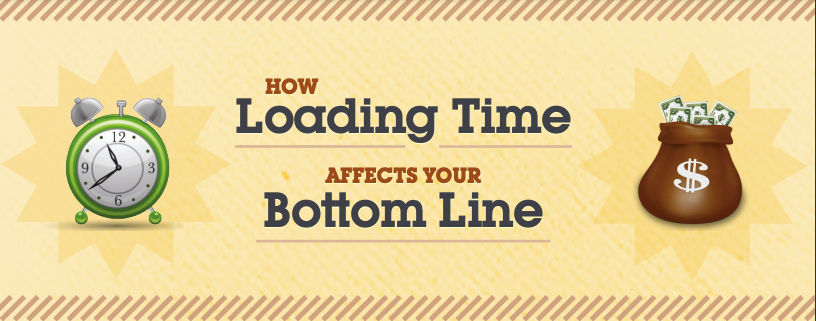
We often get asked why speed matters in website design and development. Our co-founder and director, Chris Coomber looks at why speed is important and things you can consider doing to speed up your site.

Wow! That’s just 3 seconds for your customers to decide if they are going to browse your products and services, request more information, complete a form or make a purchase. That’s less time than it takes to sneeze!
Why is website speed important?
The speed of your website is important for a number of reasons:
• Search Engine Ranking
Google ranks each site from 0-100 and takes multiple data points into that score. Sites are ranked by assessing a range of indicators and it moves from each one to the next one, with varying weightings.
Page speed is increasingly one of Google’s key pointers for ranking in search engines. This, as well as on page content and relevance. The optimal number of individual pieces of content needed to display the entire web page is fewer than 50, which doesn’t give you a lot to play with across a large site.
• Mobile First
In 2020, 87% of adults in the UK owned smartphones and in 2021 to date, 55% of website page views came from mobile phones. Searching websites via mobile is becoming the norm rather than the exception and people don’t want to wait for sites to load or have to use up their own data to waiting. There is always another site that will get you want you want.
• Positive User Experience
A slow website has a huge impact on the user experience. Poor loading speeds, buffering video, a lag in navigation and difficulty in seeing images can lead to frustration and increased bounce rates. Slow sites speed can reduce impulse buys, prevent purchases as they can make people feel like the site is not secure or processing properly. Research shows that users read fewer articles each day whilst experiencing delays loading each web page and the speed of the site negatively impacts a user’s session depth, no matter how small the delay, adversely effecting engagement and conversions.
• Improve Conversion Rates
Research published on HubSpot’s blog shows that website conversion rates drop by an average of 2.11% with each additional second of load time (between seconds 0-9). And, according to an article on marketing influencer, Neil Patel’s blog, if an e-commerce site is making $100,000 per day, a 1 second page delay could potentially cost a business $2.5 million in lost sales every year. That’s significant lost customers and a huge impact on your bottom line.
Key impacts of a slow site:
– Low conversion rate
– High bounce rate
– Poor google ranking
– Frustrated customers
– Bad customer experience
What speeds should your website be aiming for?
Google itself aims for under half-a-second load time. Pretty ambitious for everyone else to achieve! Anything less than 3 seconds is a good rule of thumb.
We recently redeveloped our own site for 4FX and aimed for a desktop score of 100 and a 80+ for the mobile version. It is something we monitor and review regularly on our own site and those websites that we host and maintain. We use the page speed insight tools from Google help to identify issues, as factors which affect the scores and the rankings change regularly.
What can you do to improve your website speed?
There are some practical things you can do to speed up your website.
• Clean up your code: Many off the shelf packages and Content Management Systems (CMS) have a lot of extra code in to cater for all possible scenarios. With a bespoke website, there is no bloated code from functionality that is not being used, such as Javascript/jQuery or code that is not required for the activity on a particular page. Less code is better all-round from a security point of view too.
• Images/Graphics: Optimising images and graphics is essential to help with page speed. When we build sites we use progressive JPEGs, highly optimised with Web P, which helps reduce bloat.
• Videos: Streaming rather than loading in one go helps with speed. This can be done asynchronously, so the video can be playing while rest of website is loading.
• Concurrent downloads: We aim for all files and content to download at the same time when the web page loads, keeping in mind the optimal number of content pieces, mentioned earlier. It is essential that the site is still readable for the user while all the components are loading.
• Optimise key phrases and SEO in on page content: Relevant and properly contextualised content with tags, titles and keywords can improve your Google rankings.
All about the customer experience
Overall, the key thing to remember is that the faster a website loads, the better it is for the end user and ultimately your bottom line.
Where possible, all our websites are built bespoke rather than using of the shelf packages. Mobile first design, speed and customer experience are at the core of our web design and development projects.
Need a steer on speeding up your website?
Contact the 4FX team on 01908 375200 or visit www.4fx.co.uk for help with optimising and speeding up your website.







